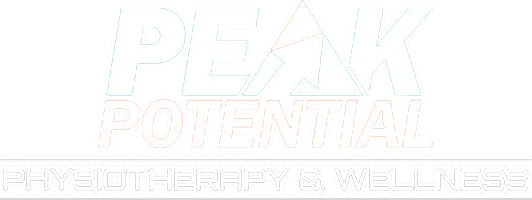After my second child was born, I learned that my
body did not respond well to dairy products. At first,
just anecdotal evidence, then lab tests confirmed a cows milk allergy.
As someone in the healthcare field who sees the
effects of osteoporosis and fractures everyday,
this really concerned me. How could I build my bone
mass up without milk or cheese?
Fortunately, education and investigation showed me
that milk products are not the most important bone building product in my grocery cart.
In fact, one Harvard study actually states the
following: “It is unlikely that high consumption of
milk or other food sources of calcium during mid-life
will confer substantial protective effects against hip
or forearm fractures”.
With that being said, we all do still need calcium in
our diets. It contributes to healthy blood pressure
and heart function, brain and nerve signalling, and
prevents diabetes through the control of blood sugar levels.
My point here is to say that calcium is not the end all,
be all of bone health. Especially not in the form of cow’s milk. Calcium contributes to bone health in combination with many other vitamins and minerals.
So, what vitamins and minerals do you need to load
up on to prevent bone loss and build new bone?
1. Calcium
It’s true that calcium is necessary for bone
development as well as strength. However, calcium
is not only found in dairy products but also white beans, broccoli almonds, greens, sesame seeds.
2. Vitamin D3
Without this vitamin, calcium can not be absorbed
by your body. The best from of vitamin D comes
from the sun. We need 20 minutes a day of sunlight on exposed skin. Too cold or cloudy? Your doctor may test your levels, as many people require supplementation. Food sources are minimal but include eggs and salmon.
3. Magnesium
When vitamin D3 enters our body, magnesium
must convert it to be usable. This is also an area of frequent deficiency. Magnesium is in highest
amounts in spinach, but also potatoes, black beans, almonds, cashews, pumpkin seeds, and avocado.
4. Boron
In addition, Boron allows proper metabolism of
all of the above nutrients. In this way, Boron
prevents the formation of weak bones. However, as a trace element, we only need Boron in small amounts. It is in chickpeas, almonds, beans, legumes, prunes, and raisins.
4. Zinc
Zinc is important for bone healing. It promotes
production of collagen proteins that build new bone. Zinc is plentiful in pumpkin seeds, beef, cashew s, chickpeas, mushrooms, and chicken.
5. Manganese
Manganese has a special role in formation of bone cartilage and collagen, as well as bone mineralization. It is found in whole grains like rye, brown rice, and buckwheat. When we replace whole grains with refined flour, our intake becomes insufficient.
6. Vitamin K
We often overlook Vitamin K. However, it
synthesizes bone tissue and binding of calcium to the bone matrix. It’s essentially the glue that sticks the calcium to bone to make it stronger. Vitamin K is plentiful in green leafy vegetables, peas, green tea, broccoli, brussel sprouts, hard cheeses, and fermented foods.
7. Lysine
Lysine may be a surprising contributor because it is an amino acid. It helps in the production of collagen, a protein that is a basic building block of bones, cartilage, and tendons. Lysine is present in protein rich foods such a meat, poultry, legumes, or eggs.
With all this being said, the best foods you can fill your grocery cart with for stronger bones are those that contain several of these nutrients.
The best choices:
- spinach
- broccoli
- almonds
- flax seeds
- eggs
You will get the most benefit for your buck with
greens. For example, Swiss Chard has a powerhouse supply of calcium, vitamin K, and magnesium. Also, one study found that by eating 1 cup of spinach a day, a woman’s chance of breaking a hip could be cut by almost 1/3 due to improved bone density.
In conclusion, osteoporosis currently affects over 44 million American’s. Fortunately, there are natural and highly effective ways you can boost bone density, primarily through your diet (or supplementation if necessary).


